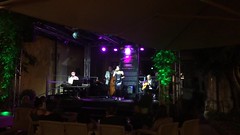A book review on Repubblica.it reminds me of a singular issue in the teaching & learning community: Studying, the road less traveled. In it, studying is compared to a sort of rebel passion.
Studying is disappearing, writes Paola Mastrocola, author of the essay “La passione ribelle” (The Rebel Passion), while she “tells about the importance of the long hours spent reading and of the need to disconnect and go back to thinking”. she concludes that today book reading is “revolutionary”.
In her pamphlet she seems to denounce the “disappearance of studying: teachers don’t study any longer”, and so do politicians and even researchers. She hardly considers school a temple of study but a temple of study-fiction instead.
Perhaps Mastrocola equates too much the verb “to study” with studying on books, but if we take it metaphorically and replace “book” with “written text”, then we may arrive at similar conclusions.
I have been studying the disappearance of the verb to study in English usage in the popular media. Substituted by the much more appealing now–learning. Why do our colleges and higher ed institutions talk so much about learning but not –almost never– about studying? Because learning happens, period. It may be facilitated, guided, inspired, structured, formal or informal, but it is an act without agency on the student’s part. Studying, on the other hand, cannot be informal, because in order to study you need to want to do it. Volition is a crucial part of the act of studying. And it’s easier to deal with non-volition, in school. The fact that you may learn, provided you study well, is a corollary hardly appearing in higher education parlance. It’s easier to assess learners’ learning than to educate students to studying. And most importantly, we omit teaching students it’s their responsibility, they need to own their own learning.
I think there needs to be a resurgence of a willingness to sit down (metaphorically), concentrate yourself, immerse yourself, surrender yourself to something, which is not at all easy to do. Reading may be the first step, but one needs to considered all media that allow one to be alone with oneself. And that is a lot of people. Social learning happens even when one thinks for himself, or meditates, or lingers on a passage, be it a formula or a complex literary formulation.
Surely, studying has more aspects than just reading or mindfully watching media. One is creating stuff, and the other is solving problems, and still another is lab research/work. Creating is however a very important part of studying, one higher ed students are not usually encouraged to pursue. Especially writing is a creation process at the very core of studying, in my opinion. The Web and its tools allow for free creation and make thus a fantastic environment to inspire studying and learning. Why then academic use of the Web is often limited to closed structures that operate as isles unconnected to the main land and encourage consumption and little creation?
Our institutions of learning ought to reflect more on such issues. But they choose to talk about teaching and learning instead of “teaching, studying and learning”. This is a bit of a manipulation on youngsters. So people believe that by coming into a classroom they will magically learn. Sure, they always do learn something, but they think that’s probably enough: they’ll likely just check “the material” when test time comes. Students only have their name to remind them they are those who study.
[Featured mage: Flickr photo by Michael Hall. CC-Licensed BY-NC-SA.]



